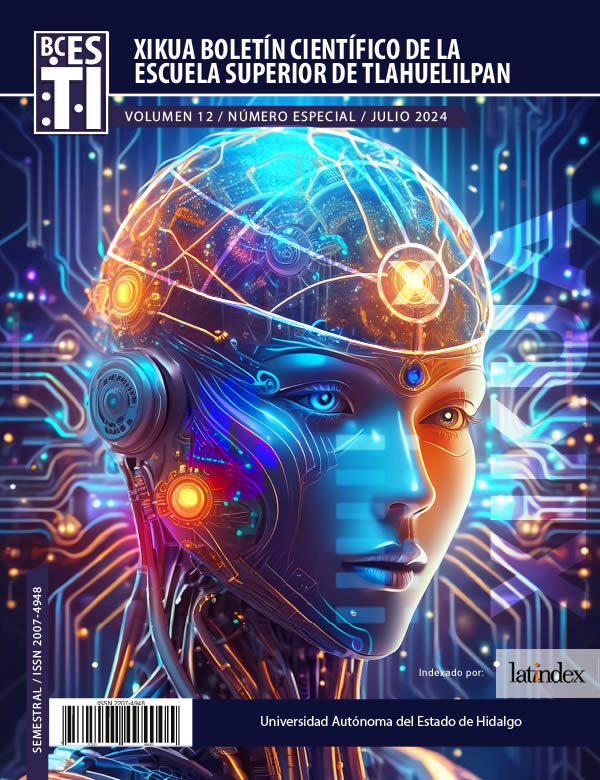Conceptual Model for Sustainable Development of Rural Areas through Integration of ICTs
ICT for smart territories
DOI:
https://doi.org/10.29057/xikua.v12iEspecial.12693Keywords:
Rural areas, model, sustainable development, information and communication technologies (ICT), digital globalizationAbstract
Information and Communication Technologies (ICT) play a very important role in many aspects of society. Through ICT people connect, goods and services are generated globally and access to information and knowledge is increased. One of the great challenges for governments is the incorporation of rural areas into digital globalization, which is why it is necessary to promote the access, use and appropriation of ICTs to increase the diversification and development of rural areas. The purpose of this article is to present a conceptual model for the sustainable integration of ICTs in the development of rural areas through the concept of smart territories.
Downloads
Publication Facts
Reviewer profiles N/A
Author statements
Indexed in
- Academic society
- N/A
References
Echeverri, R., & Ribero, M. P. (2002). Nueva ruralidad visión del territorio en América Latina y el Caribe, Instituto Interamericano de Cooperación para la Agricultura, IICA.
Kay, C. (2009). Estudios rurales en América Latina en el periodo de globalización neoliberal: ¿una nueva ruralidad? Revista mexicana de sociología, 71(4), 607-645.
Pérez, J. C. P., & Hoyos, A. J. O. (2019). Uso y apropiación de las TIC: una exploración del acceso a los cibercafés y Kioskos Vive Digital en comunidades rurales. Análisis: revista colombiana de humanidades, (95), 289-318.
Gori Maia, A., Burney, J. A., Morales Martínez, J. D., & Cesano, D. (2021). Improving production and quality of life for smallholder farmers through a climate resilience program: An experience in the Brazilian Sertão. PloS one, 16(5).
Fajrillah, F., Mohamad, Z., & Novarika, W. (2018). Smart city vs smart village. Jurnal Mantik Penusa, 22(1).
Tandi, E., & Zozimus, R. (2019). ICTs and development in developing countries: A systematic review of reviews. The Electronic Journal of Information Systems in Developing Countries, 85(1), e12060.
Bartlett, A. (2002) ICT and IMPM. In Farmers, FAO and Field Schools. Rome: FAO.
Naciones Unidas. Comisión Económica para América Latina y el Caribe (CEPAL) (2018), La Agenda 2030 y los Objetivos de Desarrollo Sostenible: una oportunidad para América Latina y el Caribe. http://hdl.handle.net/11520/23423e0251531.
Heeks, R. (2002). Information systems and developing countries: Failure, success, and local improvisations. The information society, 18(2), 101-112.
Ramírez Molina, R. I., & Ampudia Sjogreen, D. M. (2018). Factores de competitividad empresarial en el sector comercial.
Verdecchia, R., Ricchiuti, F., Hankel, A., Lago, P., & Procaccianti, G. (2017). Green ICT research and challenges. In Advances and new trends in environmental informatics: Stability, continuity, innovation (pp. 37-48). Springer International Publishing.
Boulding, K. E. (1956). General systems theory—the skeleton of science. Management science, 2(3), 197-208.
Checkland, P. (1999). Systems thinking, systems practice. John Wiley & Sens Ltd.: Chichester, UK.
Fang, F., Liu, Y., Li, Y., & Liang, H. (2014). Impact of land conversion on rural systems in typical agricultural counties of eastern plain area, China. Progress in Geography, 33(10), 1405-1413.
Ranade, P., Londhe, S., & Mishra, A. (2015). Smart villages through information technology–need of emerging India. IPASJ International Journal of Information Technology (IIJIT), 3(7), 1-6.
Letaifa, S. B. (2015). How to strategize smart cities: Revealing the SMART model. Journal of business research, 68(7), 1414-1419.


















